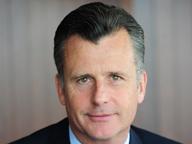Faculty News
—
Prof. Philipp Schnabl's research on mutual funds is cited
—

Excerpt from USA Today -- "Commercial paper outstanding shrunk by 15% a month after the Reserve fund's collapse, to $1.43 billion, according to a paper written by Kacperczyk and Philipp Schnabl, then with the Stern School of Business. Financial commercial paper — the type used by investment banks and finance companies to fund their operations — plunged 30% in the wake of the Reserve collapse, in large part because money funds aggressively reduced their holdings."
Faculty News
—

Excerpt from USA Today -- "Commercial paper outstanding shrunk by 15% a month after the Reserve fund's collapse, to $1.43 billion, according to a paper written by Kacperczyk and Philipp Schnabl, then with the Stern School of Business. Financial commercial paper — the type used by investment banks and finance companies to fund their operations — plunged 30% in the wake of the Reserve collapse, in large part because money funds aggressively reduced their holdings."





















